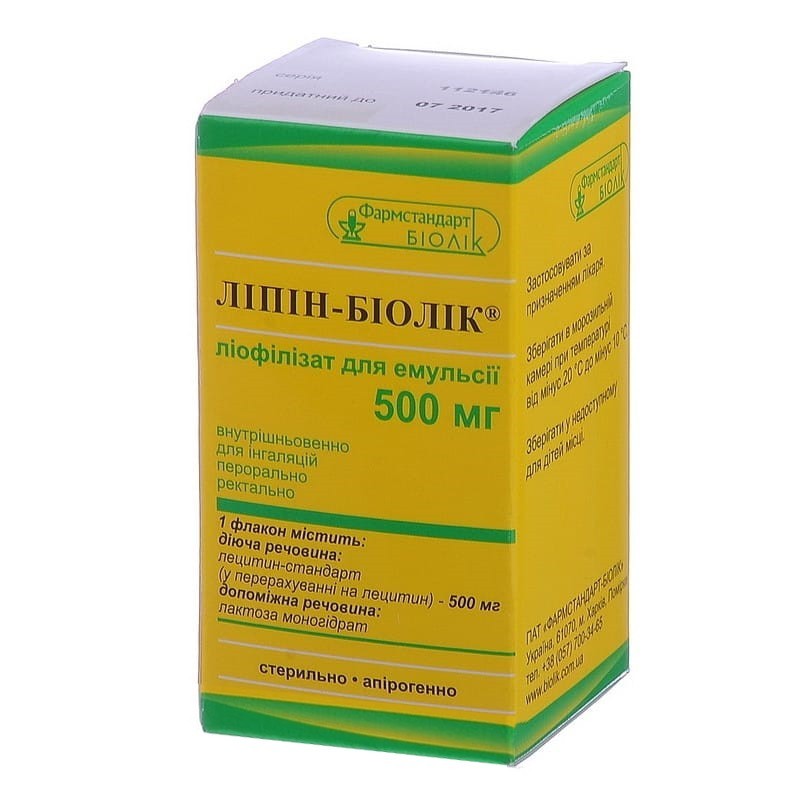



 Secure and encrypted payment processing
Secure and encrypted payment processing We ship to over 40 countries including the USA, UK, Europe, Australia and Japan
We ship to over 40 countries including the USA, UK, Europe, Australia and Japan Guaranteed refund or reship if you haven't received your order
Guaranteed refund or reship if you haven't received your orderLipin has an antihypoxic effect, helps to increase the diffusion rate of oxygen from the lungs to the blood and from blood to the tissue, and normalizes the processes of tissue respiration. restores the functional activity of endothelial cells, synthesis and secretion of the endothelial relaxation factor, improves microcirculation and rheological properties of blood. lipin inhibits the processes of lipid peroxidation in the blood and tissues, supports the activity of the bodys antioxidant systems, exhibits a membrane protective effect, performs the function of a non-specific detoxifier, and increases non-specific immunity. upon inhalation, lipin has a positive effect on pulmonary surfactant, improves pulmonary and alveolar ventilation, and increases the rate of oxygen transport through biological membranes.
Lipin does not adversely affect the functional state of organs and systems of the body, non-toxic, does not cumulate in the body.
After iv administration, Lipin as a liposome composition circulates in the blood for about 2 hours. The maximum accumulation of the drug is noted in the liver and spleen (up to 20%), which is achieved 5 minutes after administration and lasts for 3-5 hours. It is excreted in the urine and feces.
Pulmonology. acute and chronic respiratory failure syndrome of various origins in adults and children, including newborns with respiratory distress syndrome due to previous perinatal hypoxia and asphyxia during childbirth.
Cardiology. Myocardial infarction and unstable angina.
Gastroenterology. Acute and chronic active hepatitis, chronic non-calculous cholecystitis, cirrhosis of the liver, ulcerative colitis.
Obstetrics. Late gestosis, fetal hypoxia.
Nephrology. Acute and chronic pyelonephritis, diabetic nephropathy, glomerulonephritis, polycystic kidney disease, renal failure.
In / in, inhaled, orally and rectally.
For iv and inhalation use, the Lipin emulsion is prepared immediately before use by adding 50 ml of sterile isotonic sodium chloride solution to the vial. After this, the vial is shaken for 2-3 minutes until a homogeneous whitish emulsion is formed.
For internal and rectal use, Lipin emulsion can be prepared in distilled or boiled water.
Pulmonology. For inhaled use, Lipin is prescribed 10-15 mg / kg of body weight per inhalation 1-2 times a day. The course of treatment is 5-10 days. It is possible to include an inhaler in the respiratory circuit of the ventilator. For inhalation, it is necessary to use ultrasonic inhalers or aerosol inhalers.
The use of steam aerosol inhalers is not allowed!
In severe cases, the drug is administered iv in the calculation of 10-15 mg / kg of body weight 1-3 times a day. Lipin is prescribed to newborns with respiratory distress syndrome by inhalation in doses of 25-100 mg / kg of body weight per inhalation 3-4 times a day. The optimal duration of inhalation is 3-4 minutes. The course of treatment is 4–5 days. If necessary, the course of treatment can be extended up to 10-12 days.
Cardiology. In the treatment of acute myocardial infarction and unstable angina, Lipin is prescribed at a dose of 35 mg / kg body weight 4 times a day. The drug is administered iv in slowly. The course of treatment is 4–5 days. When carrying out thrombolytic therapy to prevent reperfusion damage to the myocardium, Lipin is prescribed at a dose of 30 mg / kg body weight 30 minutes before the administration of thrombolytic, and then 15 mg / kg body weight 4 times a day. The course of treatment is 7–9 days.
Obstetrics. In the treatment of late gestosis, Lipin is prescribed at a dose of 5-10 mg / kg body weight 1 time per day. The drug is administered in / in slowly. The course of treatment is 3-10 days, depending on the severity of the clinical manifestations of gestosis.
Gastroenterology.In the treatment of acute or chronic active hepatitis, chronic non-calculous cholecystitis and cirrhosis of the liver, Lipin is prescribed orally 1 g 2 times a day. The course of treatment is 18-21 days. In case of a severe course of the disease, Lipin is administered intravenously in a 5% glucose solution 1 g 2 times a day for 10 days. During treatment, a change in the method of administration of the drug is possible. In the treatment of ulcerative colitis, Lipin is prescribed 1 g in microclysters 2 times a day for 10 days, and then 0.5 g 2 times a day for another 10 days.
Nephrology. In the treatment of acute and exacerbation of chronic pyelonephritis, Lipin is prescribed at a dose of 10-20 mg / kg body weight 1 time per day in combination with antibacterial therapy. The drug is administered intravenously. The course of treatment is 3-4 days. In the treatment of chronic glomerulonephritis, diabetic nephropathy in the stage of chronic renal failure, Lipin is prescribed at a dose of 10-20 mg / kg body weight 1 time per day in combination with standard basic therapy. The drug is administered intravenously. The course of treatment is 14 days.
Hypersensitivity to the components of the drug.
Diarrhea, urticaria and other allergic reactions are possible. in these cases, the drug should be discontinued and symptomatic treatment should be carried out.
Do not use in the same syringe or inhalation device with other parenteral or inhalation solutions.
It is possible to prescribe lipin as part of complex therapy with steroids, cytostatics, antibiotics, choleretic drugs and vitamins.
Not known.
In a dark place at a temperature of 0 to –20 ° C. an emulsion prepared in sterile isotonic sodium chloride solution for no more than 6 hours at a temperature not exceeding 4 ° C.